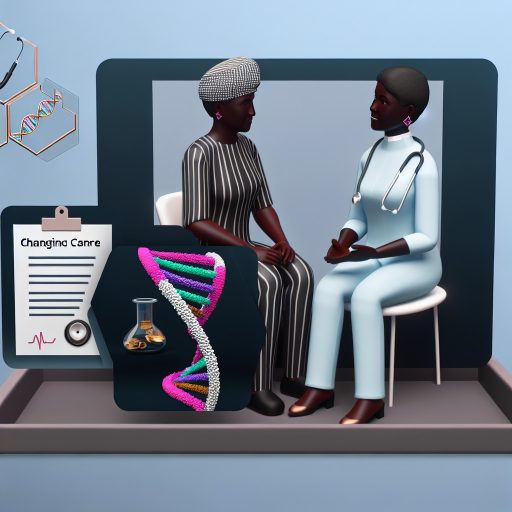Introduction:
Research in physiotherapy is vital for improving patient care.
Treatment outcomes are essential for developing evidence-based practices.
Nigerian contributions to research in physiotherapy have played a significant role in advancing the field.
These advancements occur both nationally and internationally.
History of Physiotherapy in Nigeria:
Physiotherapy in Nigeria has a rich history that dates back to the early 1950s when the first few physiotherapy training programs were established in the country.
The profession has since evolved significantly, with several key milestones and developments shaping its current practice.
Key Milestones and Developments:
- In 1952, the first physiotherapy training program was introduced at the University of Ibadan, marking the beginning of formal physiotherapy education in Nigeria.
- Throughout the 1960s and 1970s, several other training programs were established in various universities and hospitals across the country, contributing to the growth of the profession.
- In 1977, the Nigerian Society of Physiotherapy was founded to provide a platform for physiotherapists to collaborate, share knowledge, and advocate for their profession.
- By the 1980s, physiotherapy services had become more widespread in Nigeria, with an increasing number of private practices and rehabilitation centers being set up.
- In the 1990s, there was a significant shift towards evidence-based practice in physiotherapy, with researchers in Nigeria actively contributing to the body of knowledge in the field.
Role of Research in Shaping Physiotherapy Practice:
Research plays a crucial role in shaping physiotherapy practice in Nigeria by providing evidence-based guidelines for treatment, improving patient outcomes, and advancing the profession as a whole.
Some key ways in which research influences physiotherapy practice in Nigeria include:
- Informing Clinical Decision-Making: Research helps physiotherapists stay up-to-date with the latest trends, techniques, and evidence-based interventions in the field, allowing them to make informed decisions about patient care.
- Improving Treatment Efficacy: Research studies conducted in Nigeria have helped identify effective treatment methods for common musculoskeletal conditions, neurological disorders, and other health issues, thereby improving treatment outcomes for patients.
- Enhancing Professional Development: Engaging in research activities allows physiotherapists in Nigeria to enhance their skills, expand their knowledge base, and contribute to the growth and development of the profession.
- Advancing Healthcare Policies: Research findings in physiotherapy help inform healthcare policies and guidelines in Nigeria, influencing the way services are delivered, regulated, and funded within the healthcare system.
- Contributing to Global Knowledge: Nigerian researchers have made significant contributions to the global body of knowledge in physiotherapy through their research publications, presentations at international conferences, and collaborations with researchers from other countries.
Research has played a pivotal role in shaping the practice of physiotherapy in Nigeria, driving advancements in patient care, professional development, and healthcare policies.
As the field continues to evolve, the role of research in physiotherapy practice will remain critical to improving outcomes for patients and advancing the profession as a whole.
Current State of Research in Physiotherapy in Nigeria:
The current landscape of research in physiotherapy in Nigeria is gradually gaining momentum.
Researchers are exploring different aspects of physiotherapy to improve healthcare outcomes.
Key areas of focus include musculoskeletal disorders, neurological conditions, and sports rehabilitation.
Research trends in Nigeria emphasize evidence-based practice and community engagement in physiotherapy.
Researchers are collaborating with healthcare institutions and universities to conduct impactful studies.
Challenges faced by researchers in physiotherapy in Nigeria include limited funding and resources.
Lack of research infrastructure and trained personnel also hinder the progress of research in the field.
Researchers struggle with accessing up-to-date literature and global best practices in physiotherapy.
Policy support and institutional partnerships are crucial to advancing research in physiotherapy in Nigeria.
Despite challenges, researchers in Nigeria are resilient and dedicated to advancing the field of physiotherapy.
Discover More: The Impact of Diet on Eye Health: Nigerian Perspectives
Notable Nigerian Contributions to Research in Physiotherapy
Prominent Researchers in Nigeria:
- Dr. Ifeoma Nwosu – Known for her work in pediatric physiotherapy, focusing on developmental delays in children.
- Prof. Adekunle Olowu – Renowned for his studies on musculoskeletal disorders and rehabilitation techniques.
- Dr. Chioma Duru – Pioneered research on the effectiveness of physiotherapy in managing chronic pain conditions.
Groundbreaking Studies and Findings:
- Dr. Nwosu conducted a study on the impact of early physiotherapy intervention on children with cerebral palsy, showing significant improvements in motor function.
- Prof. Olowu’s research on post-operative physiotherapy protocols for patients with joint replacements led to groundbreaking recommendations that reduced recovery time.
- Dr. Duru’s findings on the use of manual therapy techniques in treating back pain have revolutionized physiotherapy practices in Nigeria.
Impact on Physiotherapy Practice:
The research of these Nigerian scholars has significantly enhanced the quality of physiotherapy services in Nigeria, leading to better patient outcomes.
Their findings have also influenced physiotherapy practices globally, shaping rehabilitation approaches for various conditions.
The groundbreaking studies conducted by these researchers have inspired a new generation of physiotherapists in Nigeria to pursue innovative research in the field.
Nigerian researchers have made notable contributions to the field of physiotherapy through their groundbreaking studies and findings.
Their impact on physiotherapy practice in Nigeria and beyond cannot be understated, as their work continues to shape the future of rehabilitation medicine.
Explore Further: Anatomical Pathology Residency Programs in Nigeria
Research Opportunities and Collaboration in Physiotherapy:
Explore the various opportunities for research in physiotherapy available in Nigeria.
Discuss the importance of collaboration with international researchers and institutions.
Highlight the benefits of interdisciplinary research in advancing physiotherapy practice in Nigeria.
Exploring Research Opportunities in Physiotherapy
Research in physiotherapy in Nigeria presents a plethora of opportunities for exploration and growth.
With a diverse population and a range of health challenges, there is a vast potential for impactful research in this field.
One of the key research opportunities in physiotherapy in Nigeria lies in studying the effectiveness of different treatment modalities for common conditions such as musculoskeletal disorders, neurological disorders, and sports injuries.
Additionally, exploring the cultural and socio-economic factors that influence health outcomes in Nigeria can provide valuable insights for developing tailored physiotherapy interventions that are more effective and accessible to the local population.
The Importance of Collaboration in Research
Collaboration with international researchers and institutions is essential for advancing the field of physiotherapy in Nigeria.
By partnering with experts from around the world, Nigerian researchers can access new perspectives, methodologies, and resources that can enhance the quality and impact of their research.
International collaboration also opens up opportunities for networking, knowledge exchange, and funding support. This can help Nigerian researchers stay abreast of the latest developments in the field and ensure that their work meets global standards of excellence.
Transform Your Career with Expert Guidance
Get personalized mentorship consulting that’s tailored to your unique path. Our expert advice is actionable and exclusive.
Get StartedFurthermore, collaborating with colleagues from diverse disciplines such as medicine, public health, and engineering can foster interdisciplinary research that generates innovative solutions to complex health challenges in Nigeria.
The Benefits of Interdisciplinary Research in Physiotherapy
Interdisciplinary research plays a crucial role in advancing physiotherapy practice in Nigeria by integrating knowledge from multiple fields to address multifaceted health issues.
By working collaboratively with experts from diverse backgrounds, physiotherapists in Nigeria can gain new insights, perspectives, and approaches to patient care that can lead to improved outcomes and quality of life for individuals seeking physiotherapy services.
Furthermore, interdisciplinary research can drive innovation in treatment modalities and healthcare delivery systems, allowing physiotherapists to adopt evidence-based practices that are tailored to the specific needs and preferences of their patients.
Delve into the Subject: How Physiotherapy Can Improve Nigerian Lives

Future Directions for Research in Physiotherapy in Nigeria:
Potential areas for future research in physiotherapy in Nigeria:
- Exploring the effectiveness of traditional Nigerian physical therapy techniques
- Investigating the impact of cultural beliefs and practices on physiotherapy outcomes
- Studying the prevalence and management of musculoskeletal disorders in different Nigerian populations
- Examining the role of physiotherapy in primary healthcare settings in rural areas
Emerging trends and technologies that could shape the future of physiotherapy research:
- Integration of telemedicine and virtual reality in physiotherapy interventions
- Advancements in wearable technology for monitoring patient progress and adherence to treatment plans
- Utilization of artificial intelligence for personalized physiotherapy programs
- Exploration of regenerative medicine and stem cell therapy in rehabilitation practices
Importance of continued investment in research infrastructure and capacity building in Nigeria:
- Enhancing collaboration between research institutions, healthcare facilities, and government agencies
- Improving access to funding opportunities for physiotherapy research projects
- Providing training programs for researchers to develop skills in data analysis and evidence-based practice
- Establishing research centers of excellence to drive innovation and excellence in physiotherapy research
The future of physiotherapy research in Nigeria looks promising.
It offers opportunities to explore culturally relevant interventions.
Additionally, leveraging cutting-edge technologies can significantly advance the field.
Building a robust research ecosystem is essential for success in physiotherapy.
Explore Further: Oral Health Education in Nigerian Schools
Nigerian Contributions to Physiotherapy Research
Nigerian research in physiotherapy has made significant contributions to the field.
The research explores various aspects such as musculoskeletal disorders, neurological conditions, and rehabilitation techniques.
Research is crucial in advancing the practice of physiotherapy.
It helps to improve patient outcomes and develop evidence-based practices.
This research enhances the overall quality of care provided by physiotherapists in Nigeria.
We must continue to encourage further exploration and collaboration in research.
By working together and sharing knowledge, we can improve patient care across the country.
Additional Resources
Physical activity profile of Nigeria: implications for research …




